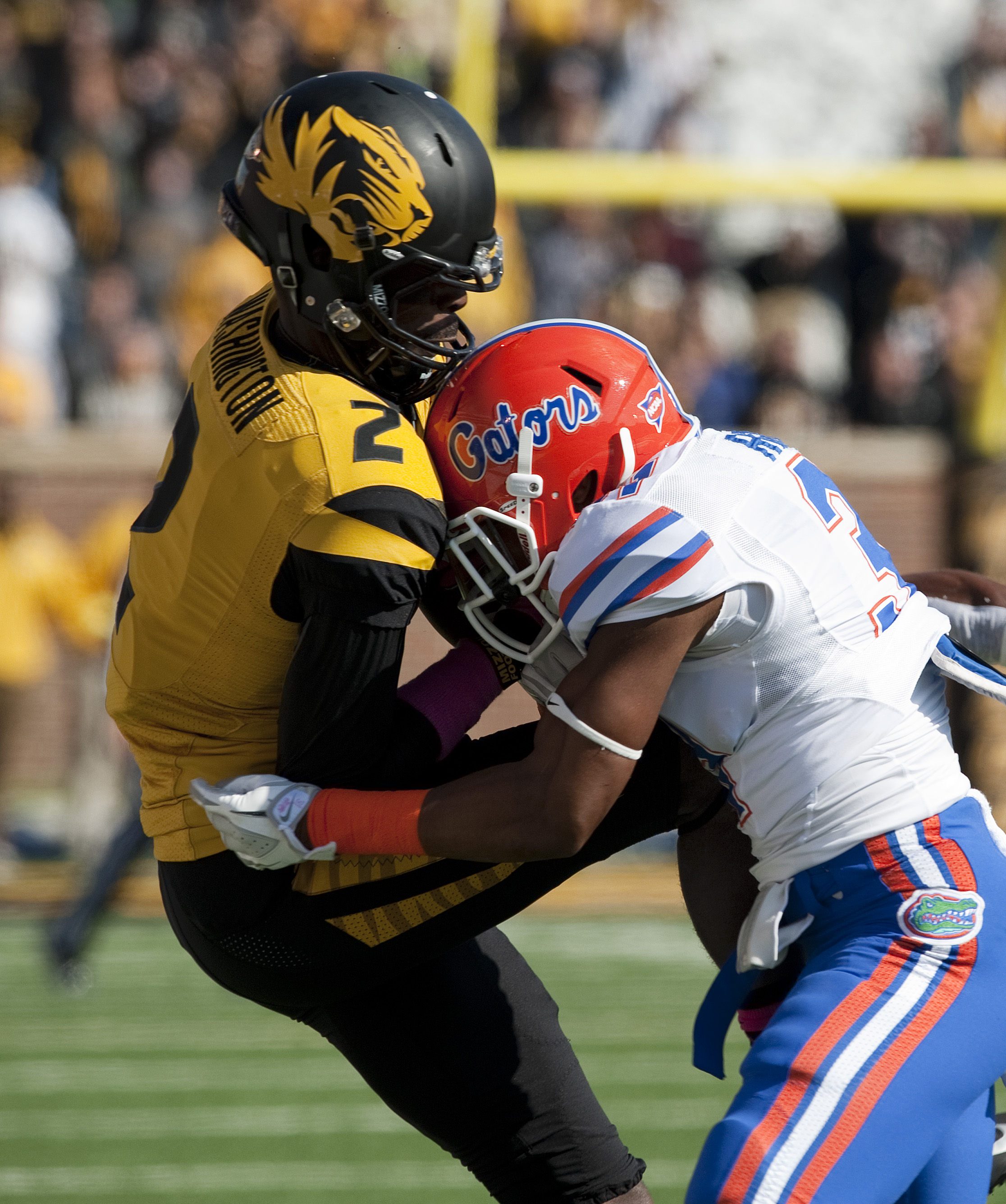Targeting fouls are down this season in college football, according to Southeastern Conference coordinator of officials Steve Shaw, but he is quick to admit there are issues with the stiffer penalties being enforced.
"As we all know, the game is under attack," Shaw said Wednesday on the league's weekly teleconference. "We're getting more and more information about concussions and their impact short-term and long-term, and there is a lot we still do not know."
Shaw said there have been 52 targeting penalties so far in the Bowl Subdivision, with 14 in the SEC. Targeting flags this year are accompanied by a 15-yard penalty and an automatic player ejection, but six of the 14 dismissals in the SEC have been overturned by replay officials, which has allowed those players to remain in the game.
The SEC had a season-high four targeting penalties this past weekend, with one player ejection getting reversed.
"I think it's a rule we have to have," South Carolina coach Steve Spurrier said. "Sometimes the referees miss it a little bit, but when there's a helmet-to-helmet hit and the tackler could avoid it, the 15-yard penalty and an ejection is something to think about. We had one last week at Tennessee, and I told our safety, J.J. Marcus, that you can't tackle like that anymore."
The most discussed targeting penalty so far in SEC play occurred early in the fourth quarter of Vanderbilt's 31-27 upset of Georgia last Saturday in Nashville. The Commodores threw an incomplete pass on fourth-and-4 from Georgia's 30-yard line, but Bulldogs linebacker Ramik Wilson was flagged for targeting.
Officials in the replay booth overturned Wilson's ejection from the game, but the 15-yard penalty was marked off by rule. The Commodores resumed possession at Georgia's 15-yard line and scored to pull within 27-21.
Shaw said the SEC is going to work with the NCAA Rules Committee after this season to revisit the penalty if a disqualification for targeting is overturned.
"Sometimes a targeting foul is only a targeting foul, and if you overturn it, there really isn't any foul on the play," Shaw said. "Sometimes, though, you can have roughing the passer and targeting, and that's the thing we've got to talk through. You can have personal foul unnecessary roughness and targeting, so do you want replay to cross over that line and say, 'We're going to overturn the disqualification, but we still think it was roughing the passer?'
"We've never had to weigh in on judgment with roughing the passer, holding, chop blocks or pass interference. What I want to try to do is that if it's a targeting foul only [and the player is not ejected], let's not penalize 15 yards, but we have to have very thorough discussion to make sure we're not officiating from the replay booth."
Vanderbilt coach James Franklin isn't opposed to making changes but wondered at what point would they stop.
"Do you now, with every single penalty thrown, review tape and decide?" Franklin said. "Are penalties that aren't called going to be reviewed? There was a major emphasis put in the offseason these last two years trying to make sure our game is not too long."
Shaw said his officials are having a great year overall and that defenders are doing a better job at heads-up tackling (seeing what they hit), lowering their target and wrapping up (avoiding the launch).
Contact David Paschall at dpaschall@timesfreepress.com or 423-757-6524.

